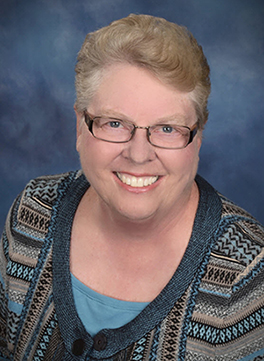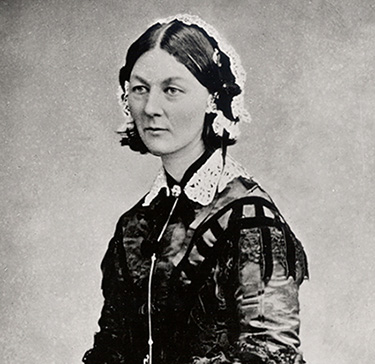This essay is adapted from a devotional shared by Chief Nursing Officer Jan Kroetz during a hospital executive leadership meeting last week in honor of National Nurses Week.
I was 6 years old when I decided I was going to be a nurse. My sister had her appendix out at the old Portland Sanitarium and Hospital that year, and little did I understand how her stay in the hospital would change my life.
I fell in love with the hospital environment, the student nurses and the idea that you could go to the cafeteria and choose whatever you wanted to eat. None of those were good reasons for becoming a nurse, but at age 6 those were the things that impressed me.
With that experience and all the mission stories I heard at church and at religious camp meetings, I was determined that I was going to be a missionary nurse. It was not until much later that I read about Florence Nightingale, widely recognized as the founder of modern nursing and who established the first secular nursing school in the world in London in 1860.
Nightingale was born into a wealthy English family in 1820 and was never expected to have her own career. She got her name “Lady with the Lamp” from the lamp that she carried as she checked patients in the battlefield during the Crimean War.
At the start of the war, she believed that the high death rate in military hospitals was due to poor nutrition, lack of supplies and overworking of the soldiers. Supplies such as soap and even water were in short supply, and patients were dying from infection.
She ordered scrub brushes and had the less injured patients scrub the hospital from floor to ceiling. She also had the nurses shorten their uniforms so they were two inches off the floor. She even had the kitchens cleaned and started a laundry so the patients had clean linens.
She did not understand all the things we now know about infection control, but she did make the connection between cleanliness and reduction of infection. Her work helped reduce deaths in the hospital by two-thirds.
Nightingale set the expectation that nurses would provide quality care and evaluate their work. She ensured patient engagement; by rounding every night, with her lamp, the soldiers were moved by her compassion and caring. She set high standards and expectations for her students. She was diagnosed with Crimean fever at age 38 and never fully recovered until her death at age 90. She died at home in 1910.
The government and the people of England wanted her buried in Westminster Abby, but her wish was to be buried in the small country churchyard of St. Margaret’s Church in East Wellow, Hampshire. Her words to nurses today are “Let us never consider ourselves finished …. we must be learning all of our lives.”
Our Loma Linda University Health nurses today are continually learning and using their skills to not only care for patients, but demonstrate compassion throughout the organization:
• There is Helena, who took the time to comb out the knots in a patient’s hair and hired her own hairdresser to come and give the patient a haircut.
• There is Nicole, who helped the husband of a trauma patient get a room for the night and then, after her shift, drove him to the hotel because he had no car.
• There is Amanda, who, at the family’s request, stayed with them during a family conference with the doctors because they wanted her support.
• There is Monica, who sits with her patients when they are fearful or feeling vulnerable and talks with them about their faith and prays with them.
• There is Chess at East Campus, who took the time to walk a young 21-year-old visitor to her car at night so she would not have to walk through the parking lot alone.
• There is Martha in the Emergency Department, whom a patient says “deserves a place in heaven” because she saw to it that even in that rushed and noisy environment he get a good night’s rest.
• And then there is Jolly, who took pictures of the flowers that had been sent to her ICU patient and hung them in the patient’s room because the live flowers could not be in the ICU room.
And I could go on and on — every day I hear stories of how our nurses are living our values.
And while it didn’t work out for me to serve as a missionary in Africa or South America, I remember clearly when I realized that God had other plans for me. He helped me understand that my mission field was going to be where He had led my husband and I — right here in Loma Linda.
The stories I hear about the compassion of our nurses remind me that we are here to continue the healing ministry of Jesus Christ, and that our mission field can be wherever we find ourselves. That realization always brings to mind the text in Matthew 25:40 — “Verily I say unto you, inasmuch as ye have done it unto one of the least of these my brethren, ye have done it unto me.”
—Jan Kroetz, MN, RN, is the chief nursing officer of Loma Linda University Medical Center.


